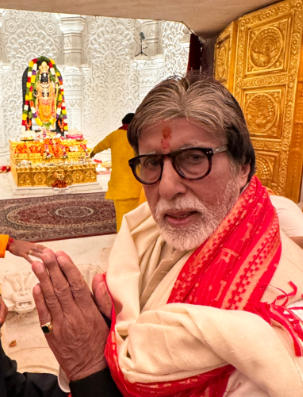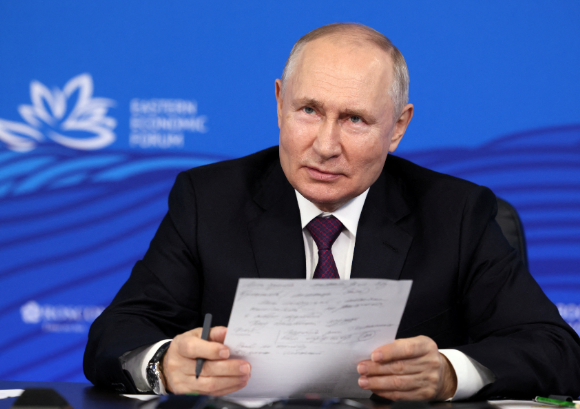
Putin Proposes Swift Resolution to Russia-Ukraine Conflict, Urging Immediate Action
Putin Bold Declaration Signals Potential End to Russia-Ukraine Conflict
In a recent interview with former Fox anchor Tucker Carlson, Russian President Vladimir Putin made bold claims regarding the ongoing conflict between Russia and Ukraine. Putin asserted that the war could be resolved within weeks if Western nations ceased their support for Kyiv.
Putin emphasized the importance of halting the supply of weapons to Kyiv, stating, “If you really want to stop fighting, you need to stop supplying weapons.” He suggested that ending such aid would lead to a swift resolution of the conflict, estimating it could be over “within a few weeks.”
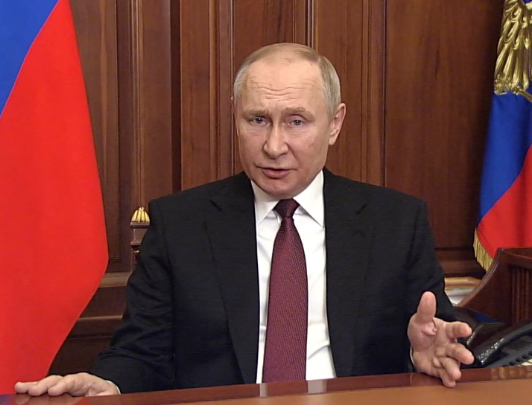
During the interview, Putin also addressed the concept of de-Nazification, explaining it as the eradication of neo-Nazi movements. He emphasized the need to eliminate individuals and groups that perpetuate and support such ideologies.
Regarding his interactions with U.S. leaders, Putin indicated a lack of recent communication with President Biden, noting that their last conversation occurred prior to the invasion of Ukraine in February 2022. He contrasted this with his prior relationship with former President Trump, suggesting a warmer rapport.
When asked about Elon Musk, Putin commented on the entrepreneur’s rumored brain implant technology, expressing admiration for Musk’s autonomy and innovation.
The discussion then turned to the attacks on the Nord Stream gas pipelines in the Baltic Sea in September 2022. Putin and Carlson engaged in a curious exchange, with Carlson denying involvement in the bombings. He humorously suggested that while Carlson had an alibi, the CIA did not, insinuating U.S. involvement in the attacks. However, he did not provide evidence to support his claim, which the U.S. government has consistently denied.
Kremlin spokesperson Dmitry Peskov indicated that Carlson was selected for the interview due to his perceived sympathy towards Moscow’s position on the conflict. He described Carlson’s stance as not pro-Russian or pro-Ukrainian, but rather pro-American, contrasting it with the views of mainstream Anglo-Saxon media.
In response to the interview, the White House downplayed its significance, stating that it would not influence public discourse in the United States.
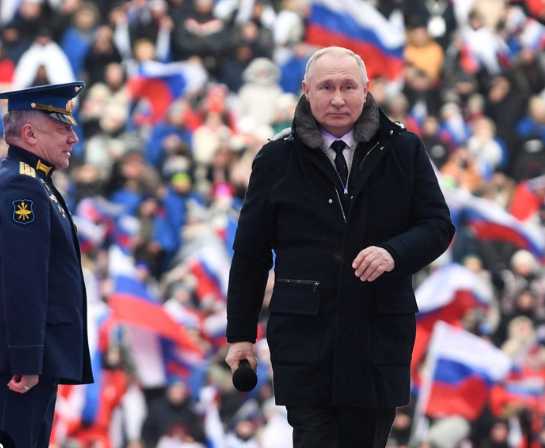
Putin’s assertions during the interview reflect the ongoing tensions and complexities surrounding the Russia-Ukraine conflict. The interview provides insights into Putin’s perspective on the war and his interactions with Western leaders, while also highlighting the role of media in shaping public narratives on geopolitical issues. As the conflict persists, diplomatic efforts remain crucial in seeking a peaceful resolution and mitigating further escalation of hostilities.
The statements made by he underscore the intricate dynamics of the Russia-Ukraine conflict and the divergent perceptions held by various stakeholders. his assertion that Western support for Kyiv prolongs the conflict reflects Russia’s narrative that portrays its actions as defensive responses to external interference in Ukraine’s internal affairs.
The concept of de-Nazification mentioned by Putin is notable, as it aligns with Russia’s characterization of the Ukrainian government as being influenced by extremist elements. This narrative seeks to justify Russia’s military intervention as a means of combating what it perceives as a threat to regional stability.
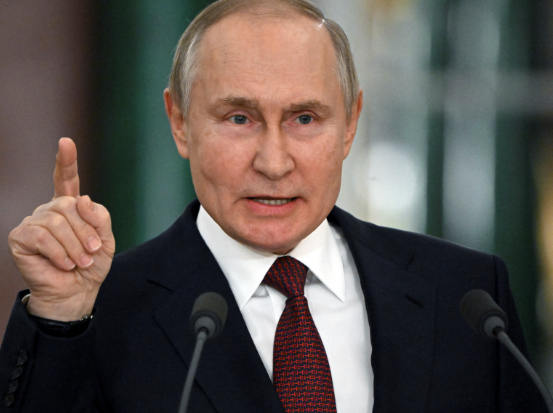
His remarks about his communication with U.S. leaders offer insights into the state of diplomatic relations between Russia and the United States. The lack of recent dialogue between Putin and President Biden underscores the strained relationship between the two countries, which has been exacerbated by the conflict in Ukraine and other contentious issues.
The discussion surrounding Elon Musk and the Nord Stream pipeline attacks provides a glimpse into the broader geopolitical context in which the Russia-Ukraine conflict is situated. Accusations and denials regarding the attacks highlight the complexities of attributing responsibility in cases of covert operations and the potential for such incidents to escalate tensions between nations.
For the latest updates-click here.


